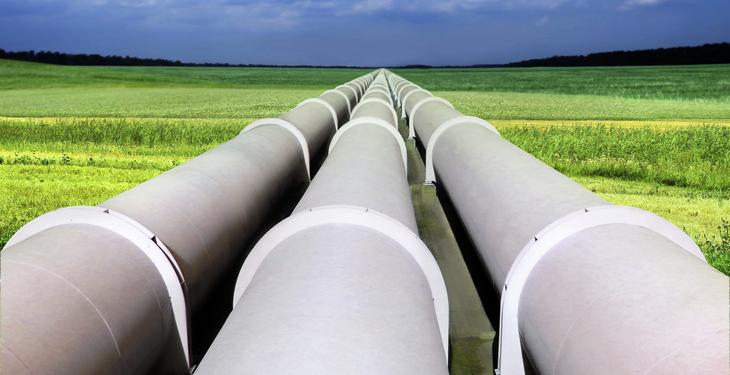Transgaz has signed a cooperation agreement with the Austrian Central European Gas Hub AG – CEGH to establish the gas hub in Romania. By February 2020, the Romanian Gas Hub joint venture will be set up, which will aim to operate the Romanian Virtual Trading Point (PVT). Transgaz will own 51% of the shares, and CEGH 49% – Transgaz will nominate the General Manager, and CEGH will nominate the Deputy General Manager, it is stated in the press release transmitted to the Bucharest Stock Exchange by the national transport system operator.
By setting up the “Romanian Gas Hub” the parties aim to ensure a liquid trading framework for natural gas in Romania and to support gas traders in the running of their business, the companies stated in the mentioned document. “The Romanian Gas Hub is a crucial achievement creating the proper conditions for Romania’s economic and financial development. Transgaz has the capacity and the necessary know-how to manage this project”, said Ion Sterian, the general manager of Transgaz SA. For his part, Gottfried Steiner, CEO of Central European Gas Hub AG, believes that “Romania with its large gas pipeline system and an enormous national gas production provides ideal conditions for a gas trading place”.
CEGH contributes with the know-how in operating a successful gas hub
CEGH is the most important natural gas hub in Central Europe and the seventh in liquidity in Europe, at the end of 2018, according to European Federation of Energy Traders – EFET. At the end of last year, CEGH signed a Memorandum of Understanding (MoU) with Bulgartransgaz, the system operator in the neighboring country, in order to support the development of the “Balkan Gas Hub” in Bulgaria.
„Bulgaria will play a key role for security of supply and competitiveness of Southeast Europe”, said on September 20th, 2018, Gottfried Steiner, CEO of Central European Gas Hub AG. CEGH pledged to contribute through „ the provision of information and know-how on successful operation of gas hubs and liquid gas trading place”. In almost the same words, less than a year later, CEGH makes the same commitment to Romania’s Transgaz: “to contribute to the cooperation with know how in operating a successful gas hub”.
Bulgaria and Romania are in competition…
In the assessment published by EFET in November 2018, the planned hub in Bulgaria obtained 4.5 points, compared to only 3 points, the one in Romania. Romania was slightly better in terms of regulations (transparency and consultation) – 2 points, compared to 1.5. However, Bulgaria obtained 3 points (compared to one point, Romania) in total on the five criteria assigned in the responsibility of their transport system operator. Both projects are merely on the drawing board, far away from the strong gas hubs in Europe, in the United Kingdom (NBP) or in the Netherlands (TTF), which score totals of 20 and 19 points respectively, in the EFET evaluation. They provide the market participants with three essential conditions: maturity, liquidity and price transparency.
The UK NBP gas market was established in the late 1990’s, and it is operated by the National Grid Gas plc, the Britain’s Transport System Operator (TSO). The same situation in the Netherlands, where the TSO Gasunie Transport Services – GTS is responsible for the Title Transfer Facility – TTF, the virtual market place or the natural gas.
… but far away from the targets
The hubs in Romania and Bulgaria would be operated by companies in which CEGH would have major share; as OMV Gas & Power GmbH controls CEGH, with 65% of the shares, a strong group involved in the production, trading and processing of hydrocarbons would gain a key position in the new hubs in Southern Europe.
“Establishing a gas trading hub takes time, investment and political will to let prices develop without regulatory intervention”, wrote Henning Gloystein, for Reuters, on December 2017. Here are other important prerequisites for the success of such enterprises. “Gas hubs require pipeline networks and storage sites that allow supplies to be traded and moved about at short notice. Diverse sources of gas supply, including from domestic output, pipeline imports and overseas LNG shipments, are seen as favorable to avoiding domination by a few producers. A strong consumer base, with competing buying interests – for example, from household, power and industrial consumers – is also seen as crucial to developing a diverse market place. Regulation allowing domestic and foreign participants to trade and access pipelines and storage facilities is also seen as essential to establishing a gas hub. Participants also need to know they can trust a government not to intervene when prices go against local interests. An oversupply of gas is also seen as necessary in the early stages of developing a trading hub to allow the commodity to be exchanged in significant volumes”. Both Romania and Bulgaria are far away from answering these prerequisites, thus a proper hub in the Southern part of Europe is hard to envisage in the near future, although there is no shortage of candidates. Besides Romania and Bulgaria, there are similar wishes expressed by Ukraine, Turkey, Greece, Hungary, Slovakia, and Poland.
